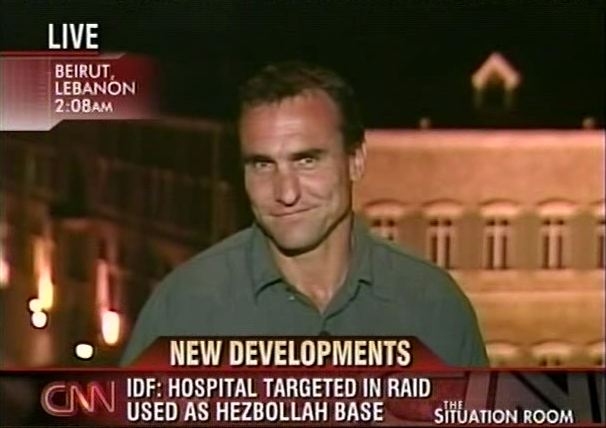TSR: "The air campaign has returned, with some vigor."

Click photo to play
Length: 24:46
WOLF BLITZER: Once again, John, thanks very much. An excellent report as usual. Let's go to Beirut right now. Michael Ware is our reporter on the scene there. Michael, we're getting new information. I know you have been working this story all day on that Israeli commando strike into the northeastern part of Lebanon, in Baalbeck, what would be described as a hospital. The Israelis saying it was really a Hezbollah headquarters, if you will. Give our viewers a sense of what we know.
MICHAEL WARE, CNN CORRESPONDENT: Well Wolf, driving out to this Hezbollah stronghold, there was a host of things to be learned. I mean the first thing was the complete absence of Hezbollah fighters on the street.
(EXPLOSION)
WARE: Wolf, I'm not sure if you can hear that, but that sounded like an Israeli air strike here in Beirut, certainly a large explosion. But in Baalbeck--
BLITZER: Well, hold on one second, Michael, I just want to make sure that you're OK and that you're not in any danger. We of course could hear that. Whatever it was, it was an explosion, a powerful explosion. We saw you clearly flinch. If you sense that you're in any danger, let us know and we will continue this conversation down the road.
WARE: Absolutely, Wolf. I think for the time being that our position here is fine. But in Baalbeck, the other thing to notice was that it clearly is the Hezbollah heartland. There's no question about the support of the people in the Bekaa Valley. It was displayed overtly in all manner of ways.
The other significant thing was, it was instructive to see the relationship between this support base and the Lebanese army. There's a Lebanese army presence there very, very clearly, but it's so obvious that these Lebanese army units either de-conflict with the presence of Hezbollah, if not actually coordinate.
The other thing is this town, this stronghold, this command and control center or logistics base is nestled right against the Syrian border. And seeing the terrain for yourself, you come to appreciate how difficult, if not impossible, it will be to close these smuggling routes that are bringing in the materiel and weapons that Hezbollah so desperately needs. But what we found at the scene of the raid is it clearly is a hospital, however, it does not have inpatients. It's an E.R. clinic.
So that explains the absence of patients. We were not allowed in the hospital itself. We were only allowed on its outskirts or outer perimeter. There was clear signs of the battle that had raged. Locals claim 16 civilians were killed. The Israeli Defense Force say that they can account for 10 deaths, all of them Hezbollah fighters. So the accounts still differ -- Wolf.
BLITZER: Michael, let's get back to that loud noise we heard when you first got up on the screen tonight. It sounds like an explosion. Could be Israeli air strikes. Is it an area, based on what you can see, in south Beirut? Because that, as you know, has been a familiar target in recent weeks, although it hasn't been necessarily a target by the Israeli Air Force in recent days; a stronghold, if you will, of Hezbollah.
WARE: Yes, as you rightly point out, Wolf, southern Beirut is one of linchpins of the Hezbollah infrastructure within this country. And certainly that explosion, be it from Israeli air strikes or be it from some other means, does appear to have come from that direction. So first glance, first take, one would assume that this was an Israeli air strike, but that's subject to confirmation -- Wolf.
BLITZER: Twenty-four hours after the Israelis resumed their air strikes full speed ahead. Michael Ware, be careful over there, reporting for us from Beirut.
[further transcript coming soon]
